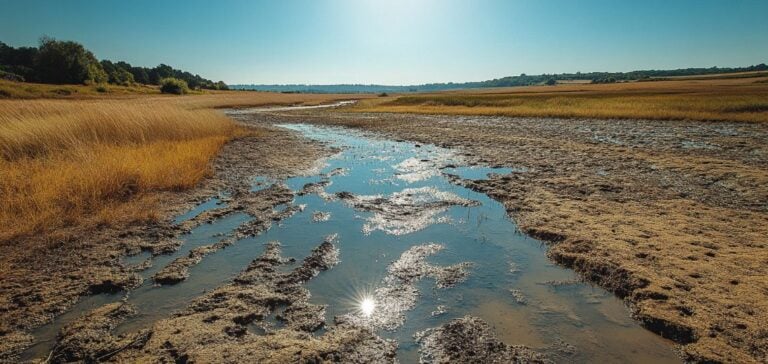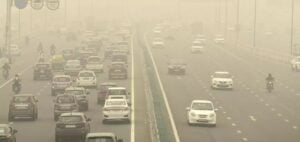The increasing pressure on water resources could significantly disrupt environmental balance in France. According to a report conducted under the Plan Eau initiative, water consumption could double between 2020 and 2050, driven by climate change and unsustainable usage patterns.
Three scenarios were explored: continuity of current practices, stricter public policies, and a bold transition to water sobriety. The “tendanciel” scenario is particularly concerning, forecasting a 102% rise in water consumption, while the “rupture” scenario could limit this increase to just 10%.
Growing Environmental Pressure from Agriculture
The agricultural sector accounts for a significant share of water withdrawals, particularly for irrigation. In heavily irrigated regions such as the South-West and Charente, the expansion of irrigated land and reduced precipitation are already creating substantial environmental challenges.
Even under the “rupture” scenario, water demand for agriculture could rise by 40%, according to the report. Proposed solutions, such as large water reservoirs or modernized irrigation systems, would only marginally ease the pressure on local ecosystems.
Environmental Challenges in the Energy Sector
The energy sector, particularly through nuclear power plants, also contributes to water withdrawals, albeit to a lesser extent. Modernizing infrastructure and gradually reducing reliance on nuclear power could mitigate this impact, but such efforts would remain marginal compared to the growing agricultural demands.
Summer droughts combined with rising temperatures are expected to exacerbate resource tensions. Dependence on energy infrastructure and upcoming political decisions will play a critical role in avoiding irreversible environmental imbalances.
A Strategic Issue for Ecosystem Preservation
Water, an essential resource for natural ecosystems, is at the heart of strategic challenges for France’s environmental future. Increasing conflicts over usage among agriculture, industry, and domestic needs could jeopardize sustainable resource management.
The report highlights several action levers, such as expanding agroecological practices, regulating crops that require intensive irrigation, and improving water-use efficiency. These measures must be accompanied by strong political will to limit tensions and safeguard environmental balance in the long term.






















